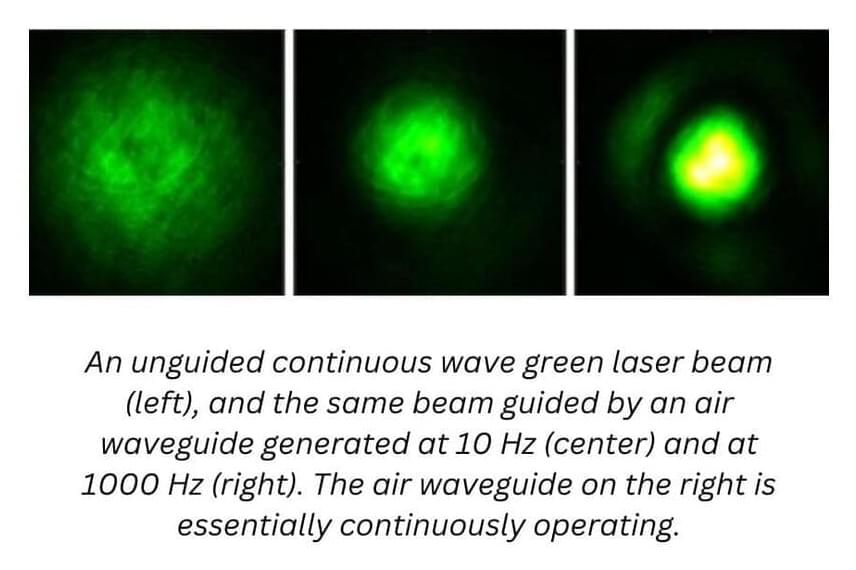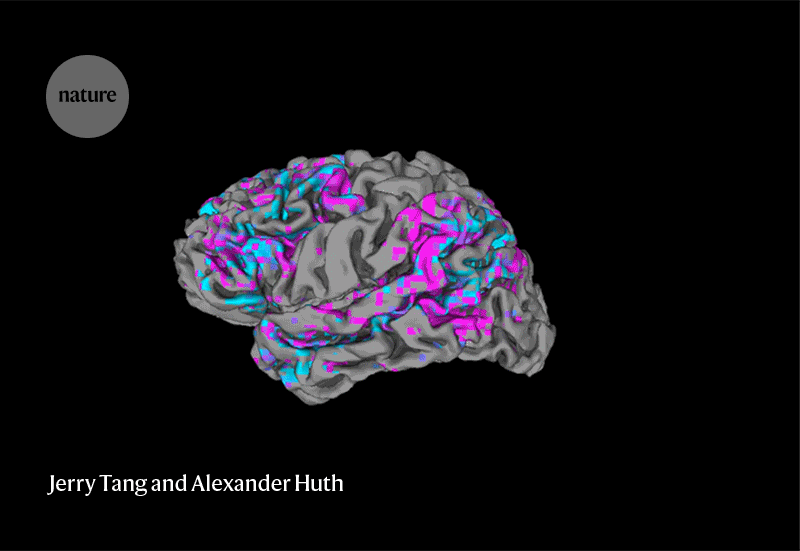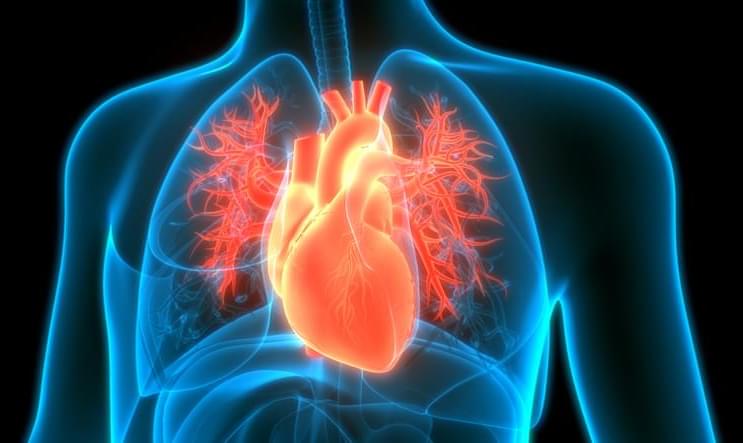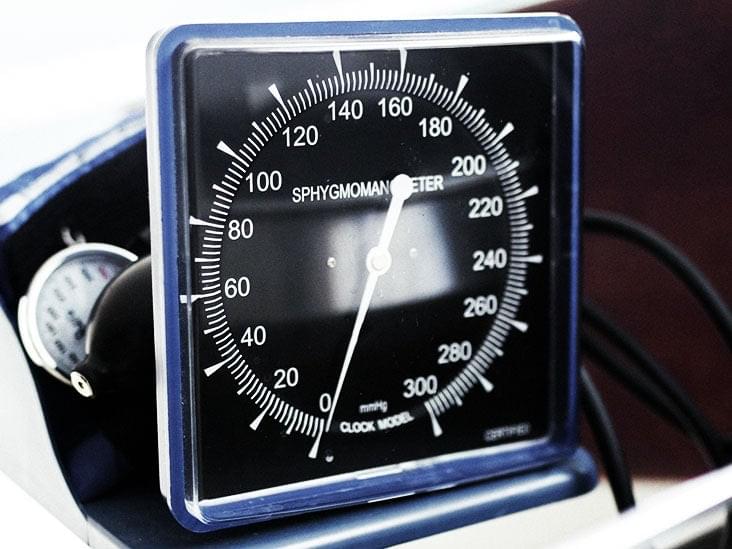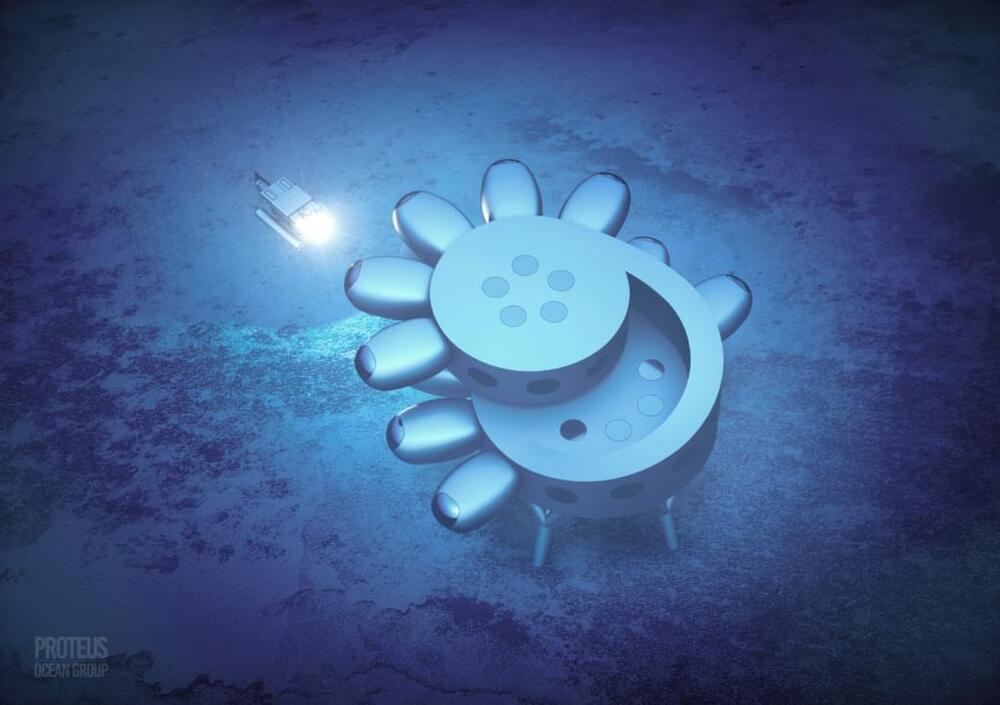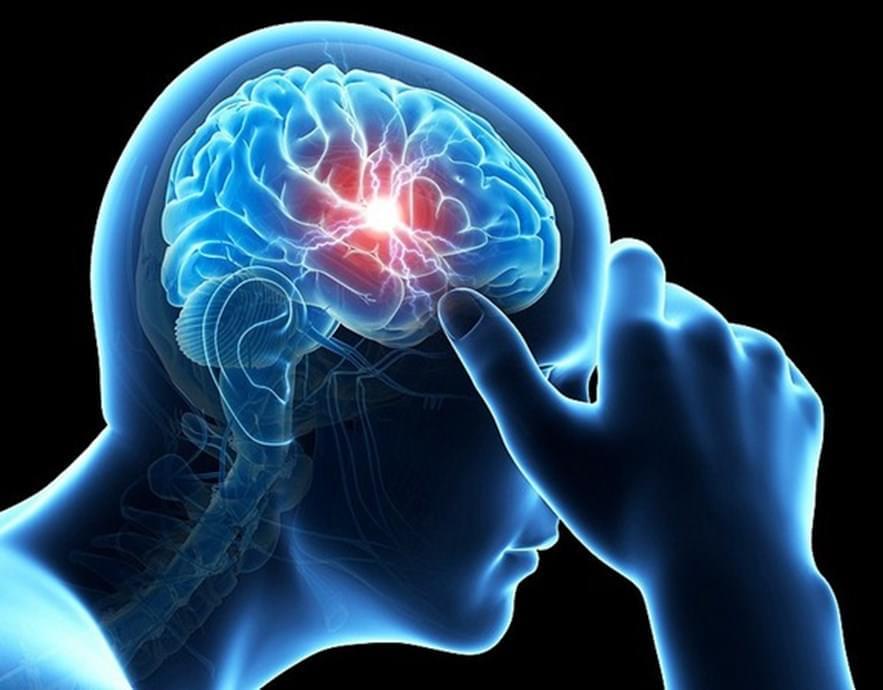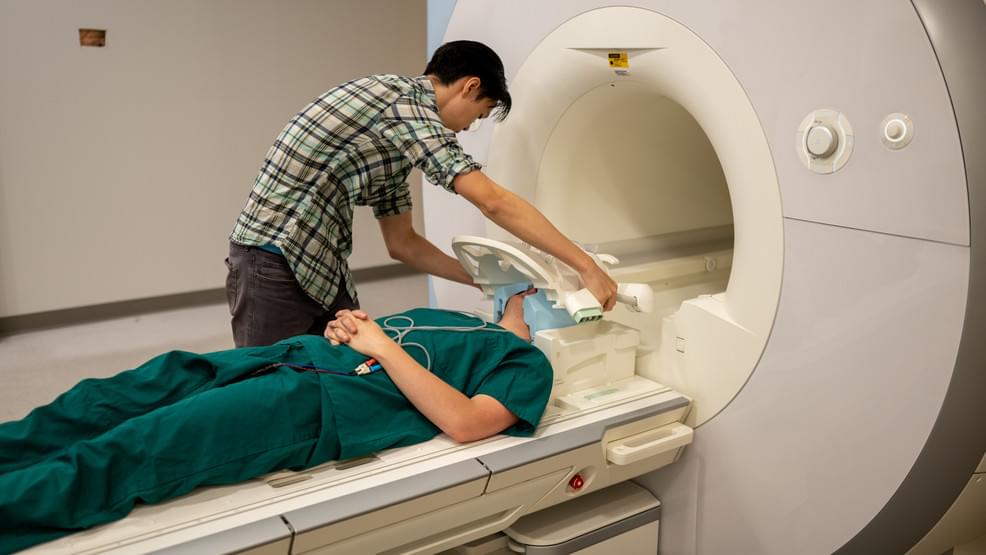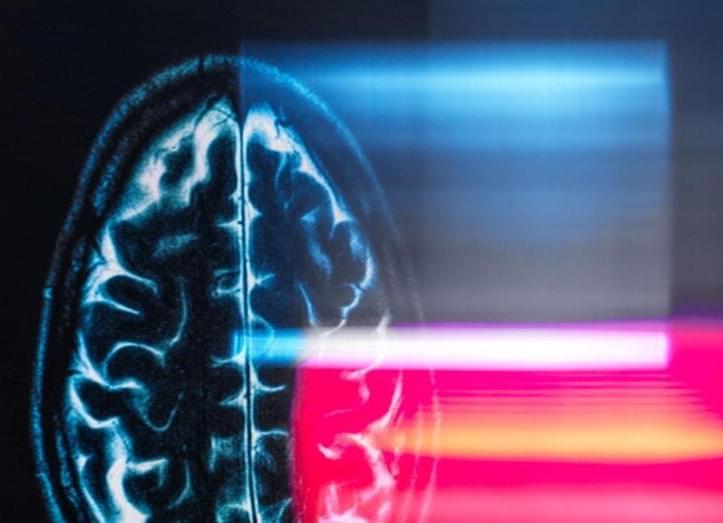May 4, 2023
Experiment demonstrates continuously operating optical fiber made of thin air
Posted by Robin Indeededo in categories: computing, engineering, physics
Great, until the mention of “directed energy”…
Researchers at the University of Maryland (UMD) have demonstrated a continuously operating optical fiber made of thin air.
The most common optical fibers are strands of glass that tightly confine light over long distances. However, these fibers are not well-suited for guiding extremely high-power laser beams due to glass damage and scattering of laser energy out of the fiber. Additionally, the need for a physical support structure means that glass fiber must be laid down long in advance of light signal transmission or collection.
Continue reading “Experiment demonstrates continuously operating optical fiber made of thin air” »
